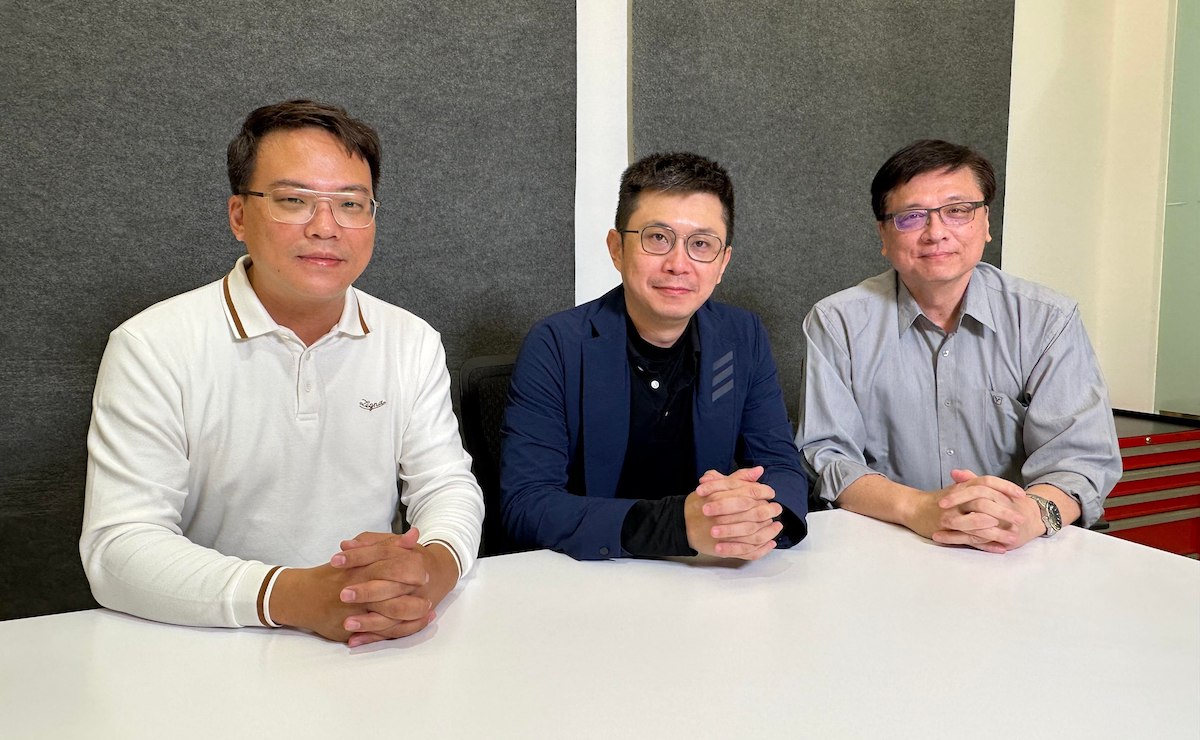When EV batteries are charging or running, the rapidly rising temperature needs to be cooled down and brought back to the operating range, or it will shorten the battery lifespan and even compromise safety over time. On November 3 afternoon, the Auto Future editorial team visited XING Mobility, a startup specializing in battery thermal management located in Neihu, Taipei, and had a conversation with COO Fenix Huang on pertinent issues.
 Fenix Huang (Middle), the COO of XING Mobility, had an interview with Jeff Lee (Right), Seven Tseng (Left), editors of Auto Future.
Fenix Huang (Middle), the COO of XING Mobility, had an interview with Jeff Lee (Right), Seven Tseng (Left), editors of Auto Future.
Founded in 2015, XING Mobility initially modified electric supercars to test technologies relating to battery systems, including modifying the 1969 Chevy Camaro and independently designing Miss R from scratch. The early experiences laid a solid foundation of design planning and technical support services for the whole EV system. Before long, the company switched its R&D focus to the thermal management of batteries. Especially for the ternary (NMC) lithium battery, to which operational safety is critically related, thermal management was a technical pain point. Today's indirect cooling by cooling lines has limited effect on ternary lithium batteries. XING Mobility has developed the second-generation immersion cooling module, where the battery pack is completely immersed in cooling fluids. The company has also developed its own battery management and monitoring system, and through special packaging technology, internal heat absorption by cooling fluids, and heat exchange technology, the battery operating temperature is maintained within the range of 25 to 40 degrees Celsius. This immersion cooling technology enables battery packs to perform better in service life, operational safety, and charging and discharging rates, and XING Mobility is getting more and more business partners in Europe, America, Japan, and Australia as a result. Especially for industrial and agricultural vehicles operating in harsh working environment, the ability to control temperature (not only cooling but sometimes heating) and charge and discharge fast is of crucial importance to the operational needs. Such opportunities will soon lead to mass production for applications. In addition, XING Mobility signed a strategic partnership agreement with BP's Castrol last year to use Castrol e-Fluids for cooling. Castrol's global channel will allow XING Mobility to market products in more areas. Immersion cooling can also be used in battery energy storage systems, and XING Mobility has already started working with domestic manufacturers on this application.
While it is important to promote business in commercial vehicles and energy storage equipment, the passenger car market, which offers the greatest opportunities, is no doubt the most important next step for XING Mobility. COO Mr. Huang pointed out that at the battery show in Stuttgart, Germany a couple of months ago, XING Mobility won orders from a major passenger car manufacturer, with a sales volume several times higher than the current status! What's more, XING Mobility has recently signed a technical cooperation agreement with VNINES, a Vietnamese EV power system company, while continuing to cooperate with HKS, a well-known Japanese aftermarket brand. The new cooling technology is believed to be another direction that can't be ignored for the global battery industry to advance battery performance.